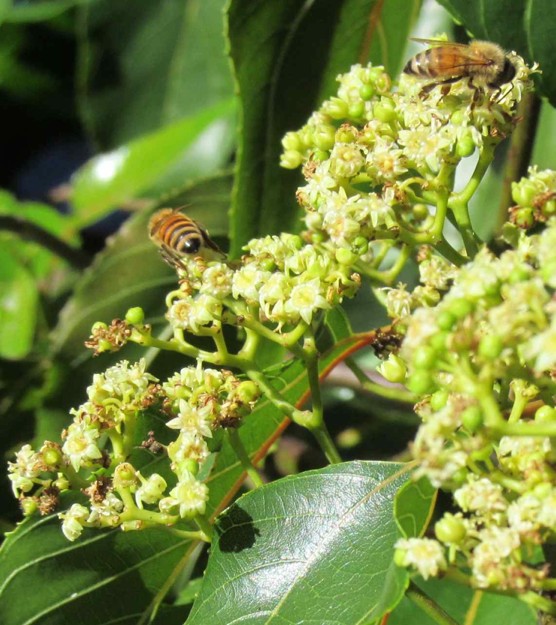January, 2014
Trees for Bees Conference # 2
Eastwoodhill Trees for Bees II: Promising Trees to Nourish Honey Bees
Second Conference on bee health at Eastwoodhill Arboretum, Gisborne.
May 9th and 10th 2014
- The biology of bees and their need for protein in pollen
- How to remedy seasonal shortages in pollen supply
- Protein sources from promising trees and shrubs at Eastwoodhill
- Applications to planting programs: erosion, riparian protection, timber, native restoration.
 The conference includes expert keynote speakers from the Trees for Bees NZ program and participating landowners, beekeepers and policy makers who are engaged in planting bee forage to improve bee health for pollination services and honey harvesting. The conference has ample opportunity for panel discussions on both days, one of which is planned as a one day field trip to a large East coast hill country property.
The conference includes expert keynote speakers from the Trees for Bees NZ program and participating landowners, beekeepers and policy makers who are engaged in planting bee forage to improve bee health for pollination services and honey harvesting. The conference has ample opportunity for panel discussions on both days, one of which is planned as a one day field trip to a large East coast hill country property.
In April 2013 the Trees for Bees Conference (#1) was held at Eastwoodhill Arboretum near Gisborne. About 70 people attended the two day event and all agreed there should be a follow up Conference in 2014.
The Conference is based on the research being undertaken by Dr Linda Newstrom Lloyd, a scientist at Landcare research. She is in residence at Eastwoodhill and studying the protein levels of pollen collected from the most promising trees in the Arboretum. This research will enable her and her team to identify those trees that are most beneficial to bee health and hive vigour at critical times of the year. See an account at http://www.eastwoodhill.org.nz/trees-for-bees-returns-to-eastwoodhill/. Dr Newstrom Lloyd will be supported by a range of speakers who will discuss in depth the major issues facing the honey bee not only in N.Z. but also in the wider world. The role of local Government, farmers and the home gardener in ensuring that trees and shrubs beneficial to bees are planted in suitable locations on their land will be discussed. Other speakers will address the nutritional needs of hives throughout the year and how best to meet the periods of shortage that can have a detrimental effect on hive health.
On the second day we are planning a field trip to a large East Coast hill country property that is placing a lot of emphasis on planting trees that will provide year round high quality pollen to sustain their bee population for the time when manuka plantings used to stabilise retired paddocks begin to flower. This trip will give attendees a chance to see first-hand some of the issues and opportunities facing land owners on the East Coast.
There will be ample opportunity for panel discussions on both days.
For further information and registrations of interest, contact Eastwoodhill Arboretum: enquiries@eastwoodhill.org.nz ph.06 863 9003
